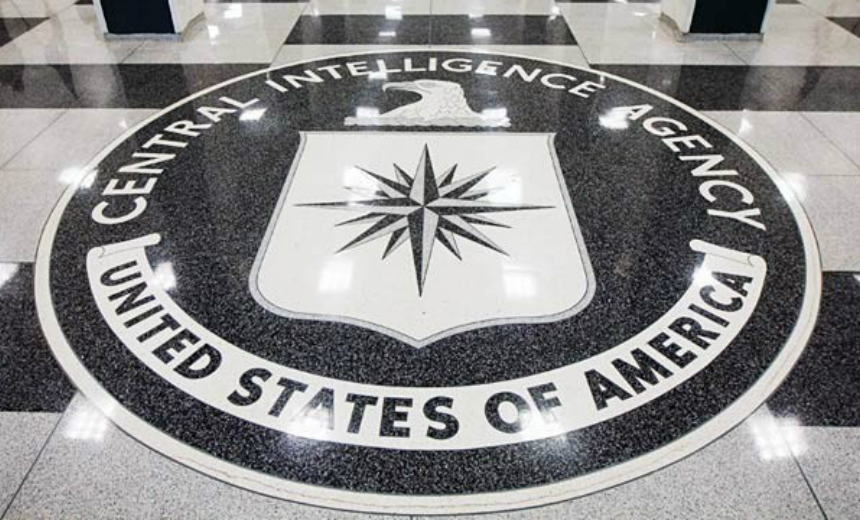Reports: CIA Says Kremlin Tried to Sway Vote Toward Trump
Obama Orders Probe Into Alleged Russian Influence
This story has been updated.
See Also: Deception-Based Threat Detection: Shifting Power to the Defenders
Hours after President Barack Obama directed the U.S. intelligence community to conduct a full review of alleged efforts by the Russians to influence the 2016 presidential election, published reports surfaced that the CIA in a secret report concluded with "high confidence" that the Kremlin tried to influence the vote in favor of Donald Trump.
The White House says the U.S. intelligence community is expected to deliver the results of the new investigation to Obama before he leaves office on Jan. 20.
"We may have crossed into a new threshold, and it is incumbent upon us to take stock of that, to review, to conduct some after-action, to understand what has happened and to impart some lessons learned," Lisa Monaco, Obama's homeland security and counterterrorism adviser, said at a Dec. 9 breakfast with reporters, hosted by the Christian Science Monitor.
Reports: CIA Says Russians Intervened to Help Trump
Hours later, the Washington Post reported that the CIA has concluded in a secret assessment that Russia intervened in the 2016 election to help Donald Trump win the presidency, rather than just to undermine confidence in the U.S. electoral system, according to officials briefed on the matter.
According to the Post, citing U.S. officials, intelligence agencies have identified individuals with connections to the Russian government who provided WikiLeaks with thousands of hacked emails from the Democratic National Committee and others, including Hillary Clinton's campaign chairman.
"It is the assessment of the intelligence community that Russia's goal here was to favor one candidate over the other, to help Trump get elected," a senior U.S. official briefed on an intelligence presentation made to U.S. senators told the Post. "That's the consensus view."
The New York Times reports the CIA concludes that the Russians hacked the Republican National Committee's computer systems in addition to their attacks on Democratic organizations, but did not release whatever information they gleaned from the Republican networks.
Trump Team Dismisses the Report
The Trump transition team, in a statement, dismissed the CIA findings: "These are the same people that said Saddam Hussein had weapons of mass destruction. The election ended a long time ago in one of the biggest Electoral College victories in history. It's now time to move on and 'Make America Great Again.'"
A joint statement issued Oct. 7 by the Office of the Director of National Intelligence and the Department of Homeland Security said that the U.S. intelligence community is "confident" that the Russian government directed attacks on American political organizations with the intent to "interfere with the U.S. election process." But those agencies at the time did not accuse the Russians of helping a specific candidate.
Trump has repeatedly questioned whether the Russians were involved in election-related hacks. In an interview with Time magazine this past week, he said, "I don't believe it. I don't believe they interfered." Trump contended that politics, not facts, were behind the intelligence community's accusations against Russia (see Sizing Up Donald Trump's Cybersecurity Acumen).
Regarding the Obama-ordered investigation, senior administration officials, according to The New York Times, say the report ordered by Obama will trace the attacks on the Democratic National Committee and on prominent political figures, including John Podesta, the chairman of Hillary Clinton's presidential campaign (see US Government Accuses Russia of Election Hacking).
New Probe to Examine 2008, 2012 Elections
White House Principal Deputy Press Secretary Eric Schultz said the investigation also would attempt to put the hacks in context by looking at possible interference in the 2008 and 2012 elections. According to published reports, the presidential campaigns of Obama and John McCain in 2008 were targets of suspected Chinese hackers seeking internal policy papers and emails of the candidates' senior advisers. In 2012, Gawker reported that hackers breached Republican candidate Mitt Romney's personal Hotmail account after correctly answering his security question: "What is your favorite pet?"
"We will be looking at all foreign actors and any attempt to interfere with the elections," Schultz said.
Schultz said parts of the report will be made public. "Obviously, you can imagine a report like this is going to contain highly, sensitive and even classified information," he said.
The ranking Democratic member on the House Intelligence Committee, Rep. Adam Schiff of California, said that given Trump's "disturbing refusal to listen to our intelligence community and accept that the hacking was orchestrated by the Kremlin, there is an added urgency to the need for a thorough review before President Obama leaves office next month."
There's overwhelming evidence of Russian hacking of our elections. By denying it Trump has essentially become a propaganda piece for Kremlin pic.twitter.com/3yTY04xNiq
— Adam Schiff (@RepAdamSchiff) December 7, 2016
Some Republicans say they want to investigate the Kremlin's cyber activity. Sen. John McCain, the Arizona Republican who heads the Arms Services Committee, says his panel will hold hearings on Russian cyber activities. House Homeland Security Chairman Mike McCaul, R-Texas, in a speech this week, said the U.S. government "cannot allow foreign governments to interfere in our democracy."
The Russia government, responding to Monaco's remarks, denied it interfered with the U.S. election and called for evidence to show its involvement, according to CNN.

















